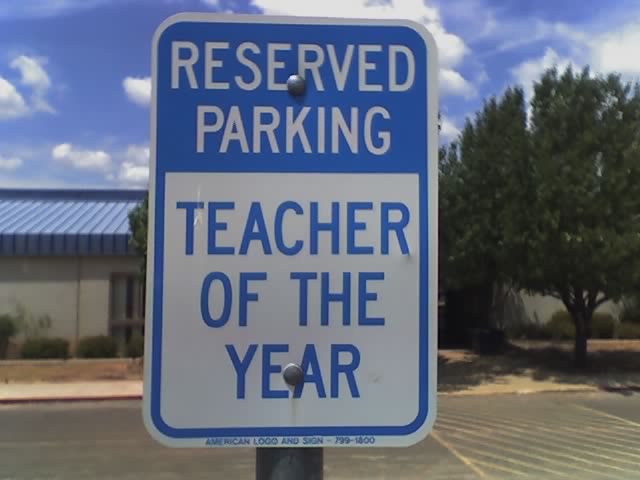
I first posted this in 2011, but I still stand by this advice. There are also some really great comments at the bottom that contain additional advice:
1) Be yourself (unless your “self” is rude, obnoxious, spiteful, arrogant, or similarly unpleasant in which case you should rethink your chosen profession anyway). When I first started teaching I worked very hard at adopting my “teacher persona.” I believe this was a result of some benign advice from an associate teacher or a professor at the faculty of education. The thing is, it’s exhausting and the kids see right through it. I tried to copy the teaching styles of teachers I respected and admired, and I suppose that’s not a bad way to start. It actually helped me figure out the kind of teacher that I’m not. I am not a stern no-nonsense disciplinarian. I am silly, laid-back, and occasionally irreverent. That doesn’t mean my students run amok, but I had to find my own way to “be a teacher.”
2) Dress up. A little. But dress your age. If you, like me, barreled on through your undergrad and straight into teacher’s college and then were lucky enough to get a position the next school year (I know… very lucky), then you’re… what… 23? Wow. You’re not much older than the grade 12s and you won’t look much older. You’re not going to fool anyone into thinking that you’re an ancient 30 something like I am, but when you’re 23, it’s embarrassing and awkward to be mistaken for a student (When you’re 32, it rocks). So, judge the vibe of your school. Some schools are more casual than others, but don’t think you can get away with the board short and flip-flop look that the eccentric, close-to-retirement, history teacher is “rocking” (questionably). If you dress up a little bit, it sends a signal that you think this important enough to dress up for and that helps–but don’t be afraid to out your own stamp on it that says “hey I’m not 32 yet.”
3) Don’t do stupid things. You’ve probably already been so scared by faculty of education lectures and gossipy horror stories that spread through your social foundations class about teachers who did foolish things on social media and were then fired. That’s not what I’m here to do. I do not want you to decide to erase your web presence and ban technology from the classroom because you’re afraid of all the horrible things that could happen to you. We are in an interesting place in our history right now and I suspect 20 years from now (I hope) we’ll all laugh about the angst we were having in education over social media. Rather than trying to eliminate your web presence, create a professional one. Start a professional blog where you reflect on and share evidence of your learning. Get on Twitter and start following other teachers (Not sure how to get started? Go here.). They will be a great support network for you and can help you out when it’s 1:00am and you really can’t hash out ideas with your department head and your girlfriend is sick of hearing about how stressed out you are. Don’t friend students on Facebook (I know some teachers who do and I have the utmost faith that they are extremely professional with their students but I won’t ever advise you to do it), but you may consider setting up a Facebook page for your class. If you teach in the Waterloo board in fact, it’s encouraged. That way you can keep in touch with students in with a medium they use, but they don’t have access to your personal information. Bottom line: never post anything online that you wouldn’t say in front of the class or in front of your principal. If you must vent, save it for direct messages and emails to your friends.
4) Cut yourself some slack. You won’t be a perfect teacher in your first year. Actually you’ll never be a perfect teacher. That’s okay. Think of your goal for your first year as being one of survival and harm reduction. Do as little harm as possible to yourself and your students, and you’re off to a good start in my opinion. If you’re a good teacher, you’re probably going to spend a lot of time agonizing over decisions you made, coming up with different ways you could have but didn’t handle a situation, and generally berating yourself for sucking. You probably don’t suck. Lighten up. Have a beer. Go for a night out with your non-teacher friends (do you still have those?) and don’t talk about school–they won’t get it and it’s not healthy for you to talk about it all the time.
This is hardly an exhaustive list but you probably have enough people giving you advice. Hang in there. Have some fun. Don’t take yourself so seriously.




